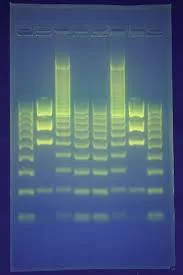
Millions of individuals who consume statins daily to manage their cholesterol levels may find promise in a new gene therapy. This innovative approach, known as VERVE-101 and developed by Verve Therapeutics in Boston, USA, has demonstrated the potential to reduce “bad” cholesterol levels by up to 50 percent with a single dose. This CRISPR-based gene-editing therapy involves a one-time infusion and has shown significant efficacy in lowering low-density lipoprotein cholesterol (LDL), commonly referred to as “bad cholesterol.”
VERVE-101 operates by utilizing DNA-editing technology to permanently deactivate the PCSK9 gene in the liver. PCSK9 plays a pivotal role in regulating blood LDL-C by influencing the LDL receptor. In contrast to the conventional regimen of daily pills or periodic injections over an extended period for cholesterol reduction, VERVE-101 presents a new treatment avenue—a singular course of therapy with the potential for profound and lasting LDL-C lowering, as highlighted by Andrew M. Bellinger, Chief Scientific Officer at Verve Therapeutics.
This groundbreaking study, unveiled at the American Heart Association’s Scientific Sessions 2023 in Philadelphia, outlines the inaugural human trial of VERVE-101. The trial included 7 men and 2 women in New Zealand and the UK, all diagnosed with heterozygous familial hypercholesterolemia. Despite their intake of the maximum-tolerated LDL cholesterol-lowering medication, these participants exhibited exceptionally high levels of bad cholesterol (average measure of 201 mg/dL).
Most participants in the study had pre-existing severe coronary artery disease, having undergone procedures such as heart attacks, coronary bypass surgery, or stenting. Notably, none of them were using PCSK9 inhibitors during the trial. Each participant received a single intravenous infusion of VERVE-101, with varying doses administered based on consultation with an independent safety monitoring board.
Results indicated that the two highest doses of VERVE-101 reduced LDL-C by 39 percent and 48 percent in participants receiving 0.45 mg/kg and 55 percent in the participant receiving 0.6 mg/kg. Additionally, the drug significantly decreased blood PCSK9 protein levels in these participants. Mild adverse events unrelated to treatment were reported, while serious adverse cardiovascular events were observed in two participants with advanced coronary artery disease.
This pioneering research suggests the potential for a transformative approach to cholesterol management, marking a significant step toward a more streamlined and effective therapeutic option.











